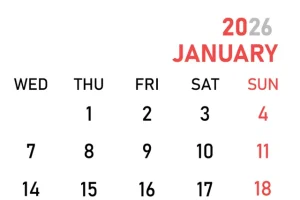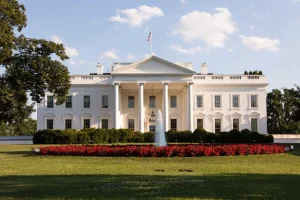Is the FCC One-to-one Consent Rule Already in Jeopardy?
*** On January 24th, 2025, the 11th Circuit Court of Appeals vacated the FCC’s one-to-one consent rule three days before it was scheduled to go into effect. Read the court’s opinion here.***
The new Federal Communications Commission (FCC) one-to-one consent rule is set to take effect on January 27, 2025. The new rule revises the Telephone Consumer Protection Act (TCPA) definition of “prior express written consent” for marketing calls to 1) require that it be obtained from consumers for only one seller at a time and 2) that the seller must be “logically and topically related” to the content of the website where consent is obtained.
The one-to-one consent rule purports to close what the FCC sees as a “loophole” that, for years, has allowed consumers to unknowingly consent to receive calls and texts from numerous sellers, often offering products and services unrelated to what consumers were seeking. Hundreds, if not thousands, of potential sellers are typically identified behind a hyperlink that also usually discloses that consumers may also be contacted by sellers not even identified.
One-to-one Consent Challenged in Court
However, as we draw closer to the effective date, the rule could be in jeopardy. Almost immediately after the FCC announced the rule, in late 2023, the Insurance Marketing Coalition (IMC), an advocacy organization for the insurance industry, filed suit in the Eleventh Circuit Court of Appeals challenging the FCC’s proposed requirements, claiming they:
- Exceed the FCC’s authority by redefining “prior express consent” to require individual consent which conflicts with the ordinary meaning of the term and established TCPA precedents.
- Violate the First Amendment by imposing content-based restrictions on commercial/marketing speech (vs. informational calls/texts).
- Arbitrary and capricious under the Administrative Procedure Act, as the FCC did not adequately justify its decisions or respond to material comments in its impact considerations on small businesses.
The FCC argued in its response brief that it has long established different rules for telemarketing and informational calls (at least since 2012), that the requirements align with the TCPA’s meaning of consent and congressional intent, and that its proposed requirements are an appropriate solution to problematic lead generation websites.
On December 18th, 2024, a panel of three judges (from among the twelve judges who sit on the 11th Circuit) heard oral arguments. At least two of the judges appeared most focused on whether the rule conflicts with the TCPA, questioning whether the rule restricts a consumer’s right to consent to multiple marketing partners and whether the “logically and topically related” requirement is an overreach. While it is difficult to predict court rulings based on questions asked, the panel’s line of questions suggests the Court could be amenable to invalidating the rule on these grounds.
The case has been expedited and may be decided before the rules take effect in less than a month, but this is certainly not guaranteed either. Businesses should continue to prepare for the rules to take effect as planned.
Adding to the uncertainty is the fact that, in another potential blow to FCC authority, the U.S. Supreme Court has agreed to hear a separate case to decide whether federal district courts must follow the FCC’s legal interpretation of the TCPA. This means the 11th Circuit could issue a stay (or delay of the rule’s implementation) or issue a ruling either invalidating the rule or upholding it.
CompliancePoint will continue to follow the Insurance Marketing Coalition case and provide updates as it proceeds.
How to Comply with the FCC One-to-One Consent Rule
With the outcome of the court case up in the air, businesses that utilize telemarketing need to take the one-to-one consent rule seriously. Here are some suggested steps businesses should begin taking to help ensure compliance:
- Ensure express written consent language specifically:
- Identifies the seller
- References the consumer’s provided phone number
- Indicates affirmative agreement
- Identifies the marketing nature of authorized calls, texts, prerecorded messages,
- Calls will or may be made with automated technology,
- Includes a statement/acknowledgment that consent is not a condition of purchasing goods or services
- When attempting to obtain consent for multiple brands or sellers, give consumers the ability to choose each seller they wish to receive calls and texts from by implementing explicit opt-in tools (e.g., checkboxes).
- Ensure that calls and texts are contextually relevant to the consent given.
- Explore ways to obtain individual consent from your current leads to meet the new requirements if you don’t already have it.
- Update any contracts with lead generation vendors to include requirements to obtain consent for each seller, one at a time, and to clarify responsibilities.
- Maintain the records to prove you have express written consent. Third parties may initially obtain that proof, but it also needs to be transferred to the seller and cannot remain with the third party only.
The FCC published this FAQ document to help businesses comply with the one-to-one consent rule.
Telemarketing Regulations: What to Expect in 2025 Podcast
To learn more about the one-to-one consent lawsuit and about other telemarketing regulation changes expected in 2025, watch or listen to the Telemarketing Regulations: What to Expect in 2025 podcast. A transcript of the episode is also available.
CompliancePoint has a team of marketing compliance experts who can help ensure your organization’s outreach efforts comply with all applicable laws and regulations. Contact us at connect@compliancepoint.com to learn more about our services.
Finding a credible expert with the appropriate background, expertise, and credentials can be difficult. CompliancePoint is here to help.





